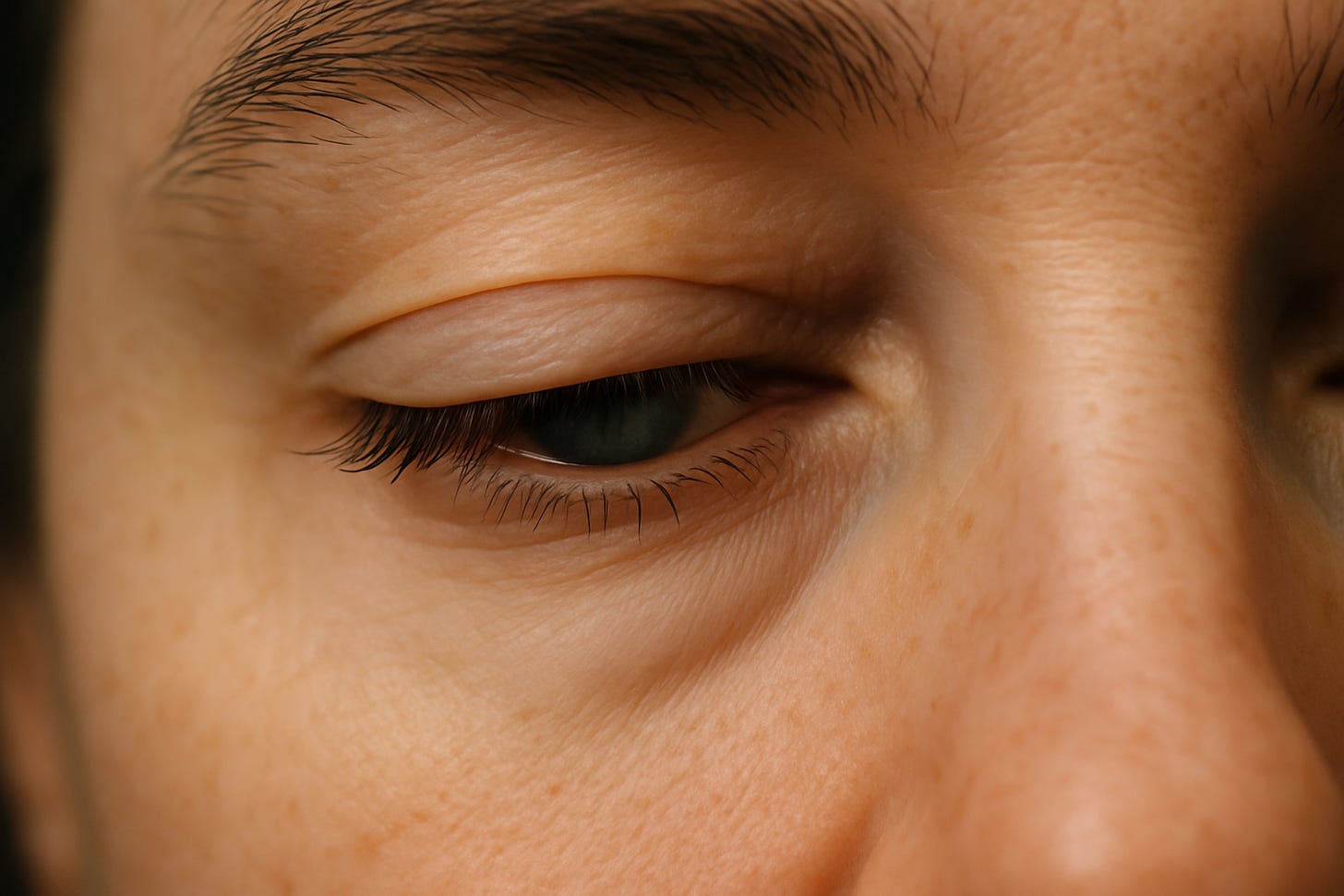Another birthday rolled by.
Not a big milestone, not one of those birthdays that triggers a party or panic—just one more candle reminding me that I'm further along than I used to be. But I’ve come to believe that after a certain point, every birthday is a milestone. If you’re still here, still standing, still able to take stock of your life—well, that’s worth something.
Lately, that stock-taking happens more often at 8 p.m. on a Saturday night. The house is calm, maybe there's a movie to watch or a family game to play—but my body taps me on the shoulder and says, “How about we just… not?”
Not because I’m sad or depressed. Just tired. Period.
And the thing is, I listen.
I didn’t used to.
I used to push through, caffeinate, pour another drink, and keep going. But now, even with regular workouts, a decent diet, and a fairly healthy weight, I average about 12 to 13 hours of work per weekday—including my commute.
I get one work-from-home day that trims that number back into the single digits, and man, does that feel like a vacation. But the math still doesn’t leave a lot of room for actual rest.
Sleep is no longer optional. It’s non-negotiable. And I’ve learned to make peace with that.
We glamorize the hustle. We valorize the all-nighters. We celebrate the one who “runs on four hours a night” like it’s a superpower. But as birthdays accumulate and friends begin to vanish due to sudden illness, stroke, heart attack, or simply never waking up—it’s not the dying in their sleep that shakes me most.
It’s that some of them were probably too tired to notice it was happening.
So let’s talk about sleep—not just for the tired middle-aged, but across every stage of life. Here’s what science tells us:
The Lifespan of Sleep: A Brief Tour by Decade
Ages 0–10: The Growth Zone
Kids need between 10–14 hours a night. Sleep is when their bodies grow, brains develop, and memories consolidate. Deprive them of that, and you’re not just making a cranky toddler—you’re disrupting crucial neurological wiring.
Ages 11–20: The Chaos Years
Teens need 8–10 hours, yet often get much less. School start times, social lives, and screens conspire against their natural circadian rhythms. It’s why adolescents resemble zombies before noon and why chronic sleep deprivation during these years is linked to long-term mental health issues.
Ages 21–30: The Invincibles
This is the “I’ll sleep when I’m dead” era. Late nights, early mornings, and little recovery. But sleep debt here doesn’t just vanish—it accumulates. Studies suggest that even in your 20s, regularly getting less than 7 hours increases your risk of obesity, diabetes, and cognitive decline later.
Ages 31–40: The Parental Trade-Off
This is where sleep is often sacrificed for family, career, or both. You’re told it’s noble. But studies show adults still need 7–9 hours, and chronic deprivation leads to mood disorders, cardiovascular issues, and premature aging.
You’re not Superman. You’re just exhausted.
Ages 41–50: The Midlife Correction
Sleep becomes harder to get, and much more essential. Hormonal changes, stress, and midlife transitions affect sleep quality. You start noticing that one late night has a 48-hour hangover. You start choosing sleep over screens.
Welcome to the club.
Ages 51–60: The Body Keeps Score
Sleep disturbances become common: insomnia, sleep apnea, restless legs. But quality sleep remains crucial for protecting memory, reducing inflammation, and maintaining immunity.
A consistent bedtime is now a medical intervention.
Ages 61–70+: The Quiet Hour
You may not need quite as much sleep (often closer to 7 hours), but you need deeper, higher-quality sleep. The risk of cognitive decline and heart disease spikes when sleep is inconsistent. Ironically, many older adults can sleep more—but don’t.
The body wants rest. Give it that dignity.
Sleep isn’t just a recharge. It’s maintenance, repair, and preservation. It’s your brain’s janitorial crew scrubbing the mess of the day. It’s your immune system running a systems check. It’s the emotional recalibration that keeps you from screaming into traffic on Tuesday morning.
Look, I get it. It’s not easy to hit the sack without your brain spinning through the next potential nuclear war or the next stupid thing likely to drop out of D.C. (Oh wait—I repeat myself.) But you have to.
You’ve got to be a little stoic about it. Control what you can control. Stay informed, stay concerned, but recognize that losing sleep over it is self-defeating. The world does not care that you worry.
And your exhaustion won’t make it any better.
So here’s my question to you: Have your sleep habits changed with age? Have you made peace with the early bedtime—or are you still burning that midnight oil? I’d love to hear your story. Click the button to comment:





I read your piece this morning after waking early. I couldn’t sleep. Figures.
The news from DC depresses me and made the mistake of coupling the news with a disturbing show on AppleTV
I couldn’t shut it off when my head hit the pillow. I miss sleeping through the night. 🥱